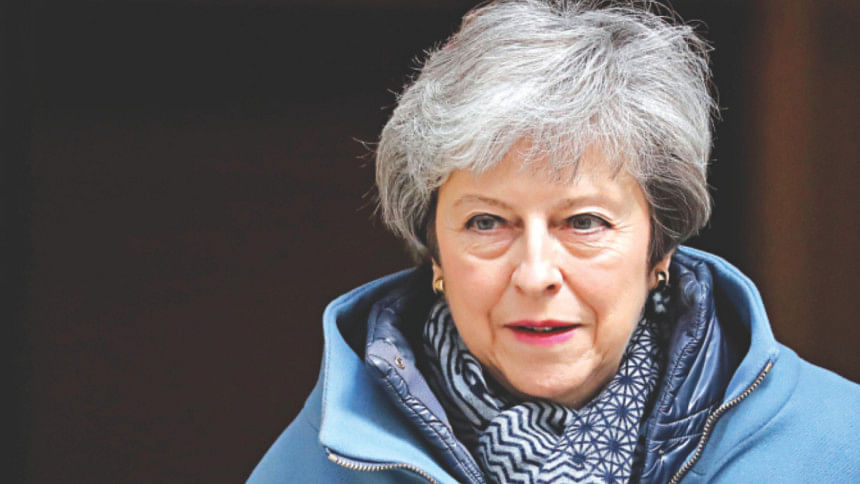May in Brexit gamble

-
EU says no more short extensions
-
Move makes softer Brexit more likely
-
Conservatives furious at leader; Labour warns of 'trap'
British Prime Minister Theresa May was set to seek a Brexit compromise with opposition leader Jeremy Corbyn yesterday, a gamble that could see a European Union divorce deal finally clear parliament but also tear her party apart.
The United Kingdom was supposed to leave the EU last Friday, but, three years after Britons narrowly voted for Brexit in a referendum, it is still unclear how, when or even whether it will exit the bloc.
After her EU withdrawal deal was rejected three times by lawmakers, with parliament and her Conservative Party hopelessly divided over Brexit, May said she would talk to the Labour Party leader in a bid to overcome what is now a national crisis.
However, by approaching Corbyn, a veteran socialist loathed by many of May's Conservatives and mocked by May herself as unfit to govern, she risks further inflaming divisions in her party. One minister quit on Wednesday.
May and Corbyn will meet at 1330 GMT but may struggle to find a compromise position that can satisfy their own parties.
May turned to Labour after a hardcore eurosceptic group of Conservatives repeatedly rejected her divorce deal, saying it would leave Britain a 'vassal state'.
Labour wants to stay in a customs union with the EU, raising the likelihood of a "soft" Brexit option that keeps Britain's economy closely aligned to the world's biggest trading bloc.
Brexit Secretary Stephen Barclay said the government would accept a soft Brexit if parliament voted for it.
May said on Tuesday she would seek "as short as possible" a delay to the current Brexit date of April 12, having repeatedly said she did not want Britain to have to take part in European Parliament elections on May 23.
European Commission President Jean-Claude Juncker said Britain would not get any further short delays to Brexit unless its parliament ratified a deal by April 12 - the date set by EU leaders as the effective cut-off for avoiding the European Parliament elections.
"A 'no-deal' at midnight on the 12th of April is now a very likely scenario," he told the European Parliament.
Conservative divisions over Europe are decades old and have led to the demise of three prime ministers: David Cameron, John Major and Margaret Thatcher.
Labour is also far from united. Pro-EU Labour lawmaker Ben Bradshaw warned: "It is clearly a trap designed to try to get May's terrible deal through, which some people have fallen for, but Labour mustn't.”
It is also unclear where May's last-ditch bid will leave her minority government. The Democratic Unionist Party, the small Northern Irish party whose support she needs to govern, said it was wary of making any deal with a man whom many in May's party have demonised.

 For all latest news, follow The Daily Star's Google News channel.
For all latest news, follow The Daily Star's Google News channel. 



Comments